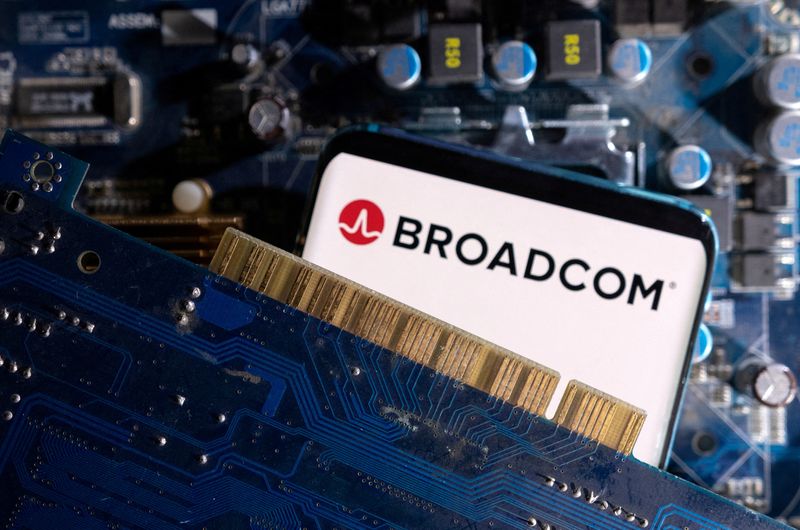(Reuters) - Alphabet (NASDAQ:GOOGL)'s Google said on Thursday it does not see any change in its relationship with Broadcom (NASDAQ:AVGO) following a media report the tech giant considered dropping the chipmaker as a supplier of artificial intelligence chips as early as 2027.
Broadcom shares pared losses after falling as much as 4.3% following The Information's report Google will design the chips - called tensor processing units - in-house if it decided to go ahead with the plan and could potentially save billions of dollars in costs annually.
Google has been ramping up chip investments this year as it plays catch-up with Microsoft (NASDAQ:MSFT) for domination of the booming market for generative AI applications such as ChatGPT
The report had said Google's deliberations came about after a standoff between the company and Broadcom over the price of the TPU chips, and that Google has also been working to replace Broadcom with Marvell (NASDAQ:MRVL) Technology as the supplier of chips that glue their servers together.
"Our work to meet our internal and external Cloud needs benefit from our collaboration with Broadcom; they have been an excellent partner and we see no change in our engagement," a Google spokesperson said.
Shares of Marvell, which declined to comment, reversed course and were down 1.3%.
Broadcom did not respond to a Reuters request for comment.
Broadcom is seen as the second-biggest winner from the generative AI boom after Nvidia (NASDAQ:NVDA). CEO Hock Tan had predicted in June the technology could account for more than a quarter of the company's semiconductor revenue next year.
In May, J.P. Morgan analysts estimated Broadcom could get $3 billion in revenue from Google this year after a "recent order acceleration" by the company for its TPU processors.
Google co-designs its AI chips with Broadcom and tech giant has already lined up the semiconductor firm for its sixth generation processor, the analysts said. They added Broadcom also works with Meta Platforms (NASDAQ:META) on the social media giant's custom chips.

Big technology companies from Microsoft to Amazon.com (NASDAQ:AMZN) have in recent years rushed to develop custom chips that help them save on costs and are suited to their specific workloads.
That push has accelerated this year after prices surged for Nvidia's H100, the chip that powers most generative AI apps, to nearly double its original cost of $20,000.